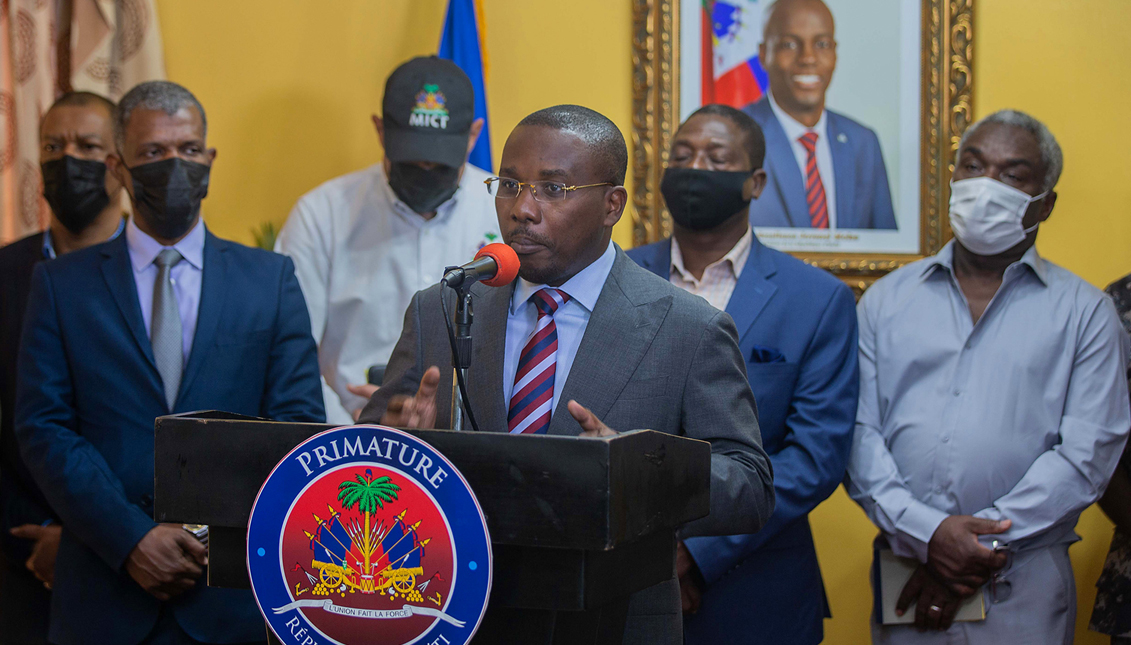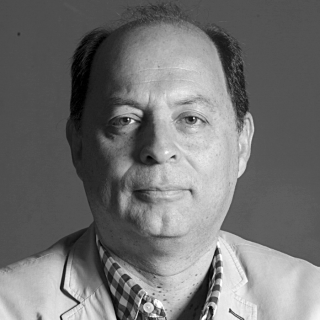
Haiti Prime Minister a suspect on President's murder
Conspiracies from Colombian ex-miliary men, two Colombia civilians, and a Venezuelan business surround investigations from the FBI and Haitian authorities.
A former congressman and a Haitian doctor, a Haitian-American, a Venezuelan businessman, two Colombian civilians and at least seven Colombian ex-military men are emerging as the main organizers of the assassination of Jovenel Moïse.
However, the main accusatory finger is directed at Prime Minister Claude Joseph, who now holds the reins of the country as acting president, as suggested by investigations carried out by Haitian authorities and the FBI.
A journalistic report published recently by the Investigative Unit of Noticias Caracol, a television news program in Colombia, gives clues about the planning and execution of the operation that ended with the assassination of the Haitian president, which occurred at dawn on July 7.
According to the Colombian journalists, planning for what was originally going to be the kidnapping of Moïse started in November of last year, but the operation, which involved more than 20 Colombian mercenaries, ended in a murder order.
After the assassination, the Haitian authorities began an intense persecution of the perpetrators of the crime, which ended with the capture of 23 Colombians, two Haitian-Americans, and the death of three mercenaries from Colombia.
Until this Thursday, there had been scattered and abundant information. But it seems the pieces of puzzle will finally be put together after it was learned that three captured Colombians gave details of how the operation was planned, when and who participated directly in the action to remove Moïse from power.
Agents from the United States, Haiti, Colombia, Panama, Ecuador and the Dominican Republic have participated in the investigation, amid the astonishment and concern of governments and authorities throughout the continent.
According to the journalistic investigation, of all the Colombian mercenaries, only seven knew that the purpose was initially to kidnap Moïse.
The great revelation comes with the participation of Prime Minister Claude Joseph, who after the assassination of Moïse, assumed the presidency amid opposition from other sectors. The purpose, according to the statements of three Colombian mercenaries, was for Joseph to assume the presidency of the poorest country in the Western Hemisphere.
According to Noticias Caracol, Joseph would have promised the former Colombian military to protect them once he assumed power.
The journalistic report also confirms that Venezuelan businessman Antonio Intriago, owner of CTU Security, a Miami based firm with ties to the Colombian government, was the host of the initial planning meeting to deal with Moïse. The meeting was also attended by Arcángel Pretel, a Colombian, and manager of the company, a Haitian diplomat, the Haitian doctor Christian Sanon, the Haitian-American James Solanges and Jonathan Rivera García, a former Colombian military man, who oversaw the hiring of the mercenaries from his country.
RELATED CONTENT
Later, the Haitian political leader Phenil Gordon, who helped to obtain the weapons used between the night of July 6 and the early morning of July 7, joined the plot.
Investigators from the FBI and Haiti, as revealed by Noticias Caracol, pointed out that the main promoters of the crime were, in addition to Claude Joseph, Sanon, already in the hands of the Haitian authorities, and former Haitian senator John Joel Joseph, whose location is unknown.
How did investigators tie up the loose ends? According to reporting, they obtained calls and photographs of meetings that show Joseph linked with the Colombian mercenaries.
After the first meeting, Pretel and Solanges contacted Jonathan Rivera, who made the link with his brother, retired Army Captain Germán Rivera, and with retired Sergeant Duverney Capador.
Johnathan Rivera did not participate in the operation and, on the contrary, has provided valuable information to the investigators. Germán Rivera was captured in Haiti and Capador died in the operation in the middle of the confrontation with Haitian authorities.
One of the most revealing data points is related to the last minute decision to no longer kidnap the President, but to assassinate him. This fact caused Rivera to withdraw from the operation.
Another detail revealed in the last hours indicates that a command of seven mercenaries entered the residence of the Haitian president while the other armed men remained in control outside.
One hypothesis still to be verified is that only seven former Colombian military men knew the true purpose of the work for which they had been hired.











LEAVE A COMMENT:
Join the discussion! Leave a comment.